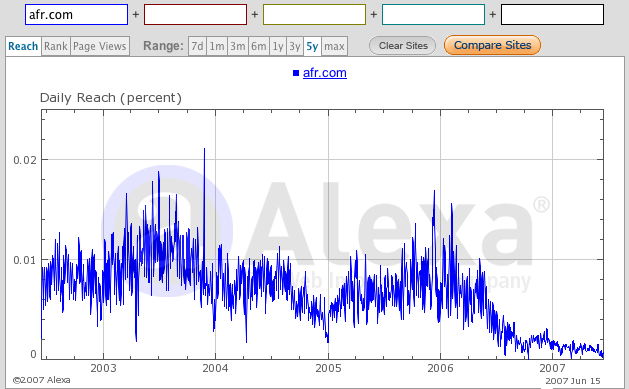Who will win the race for Internet dominance? Google, Microsoft, and Yahoo! are certainly the key finalists. At this point, however, Google seems to be ahead in creating the computing power necessary to win.
Google is building a massive campus on the shores of the Columbia River, on the Oregon side of the Oregon-Washington border. While the project is shrouded in secrecy, the data center will include two or three large buildings and two cooling plants (to keep all those servers running). The site is at least as large as two football fields. (See the article for an aerial photograph.)
According to The New York Times, this upgrade in computing power is in addition to what is referred to in the industry as the “Googleplex”, a global network of computers that distinguishes Google from the competition. (Strangely, the only references to “Googleplex” I found–with Google’s search engine–were to Google’s corporate headquarters, and not to its computer network.) In contrast to the estimated over 450,000 servers forming Google’s network, Microsoft has approximately 200,000 servers devoted to the Internet, which is expected to increase to 800,000 by 2011.

